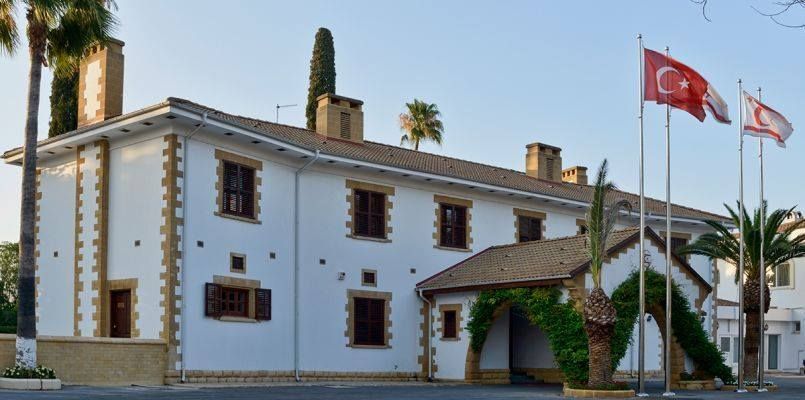Turkish Republic of Northern Cyprus Presidency Statement Concerning UN Security Council Resolution 2561

Resolution 2561/2021 adopted yesterday by the UN Security Council endorsing the reports of the UN Secretary-General on his Mission of Good Offices and the operations of the UN Peacekeeping Force in Cyprus, are in conflict with the said reports. The conflicting expressions in the resolution shall not affect the official position of the Turkish Cypriot side, which shall be participating in the 5+UN unofficial meeting in a creative, constructive and determined manner.
The UN Secretary-General recorded, in both of his reports, that the Turkish Cypriot and Greek Cypriot sides have two different positions concerning the ground for negotiations and noted that the two sides would be participating in the unofficial talks in order to determine whether there is a common ground for the commencement of formal negotiations. In contrast, the UN Security Council, in its said resolution, makes reference to the basis that has repeatedly failed in the past half a century, thereby restricting the openings that could overcome the unacceptable status quo and pave the way for a new negotiating basis for a settlement.
This resolution is not in accordance with the very philosophy of the unofficial talks, in which the two parties and the three Guarantor Powers would be participating, together with the UN, with a view to determining if common ground exists between the two sides. Our reservations about this resolution were expressed personally by our President to the Secretary-General in their recent on-line meeting. It should be recalled that the UN Secretary-General’s expectation from the informal talks is to explore if there is common ground on which it will be possible to start formal negotiations.
The UN Security Council stresses, in almost all of its relevant resolutions, that the status quo on the island is unsustainable. However, the message given by these resolutions have the effect of encouraging the Greek Cypriot leadership, which is making every effort to maintain and benefit from the status quo, to continue with this policy.
A similar situation exists in relation to the tension in the Eastern Mediterranean Region, further increased by the Greek Cypriot side, because of its hegemonic vision. While it is accepted by all interested parties that the hydrocarbons around the island belong to both sides, repeated Turkish Cypriot proposals for cooperation on this issue, which are still on the table, have not been heeded by the other side. With this resolution, the Security Council, rather than inviting the parties to start cooperating on this matter without delay, is in effect postponing the handling of this problem that adversely affects the security and stability of the region, until after a settlement which has proved to be elusive. This only serves the perpetuation of the status quo, which, in turn, has the effect of encouraging the Greek Cypriot side to continue with its hegemonic attitude and thus increasing the tension.
The unfortunate pronouncements in the UN Security Council resolution concerning the process that started with the initiative taken by our President regarding the opening of the fenced-off area of Maraş (Varosha) also have the effect of perpetuating the status quo. We would like to reiterate that the Turkish Cypriot side is determined to continue with the process concerning the opening of Maraş (Varosha) in a manner that would benefit the whole island and in accordance with international law, through the Immovable Property Commission.
A detailed analysis of over half a century of endless negotiations, where all negotiation tools and avenues have been exhausted, clearly reveals that, given the Greek Cypriot hegemonic outlook, a bi-communal and bi-zonal federal settlement is neither realizable nor sustainable in Cyprus. In the light of this, our President has proposed a cooperative relationship with the Greek Cypriot side on the basis of the sovereign equality of two sides and the equal international status of the two States, which we believe will be more sustainable in view of the realities of the island and our region.
Our efforts and vision to realize this realistic and more sustainable result will continue.

